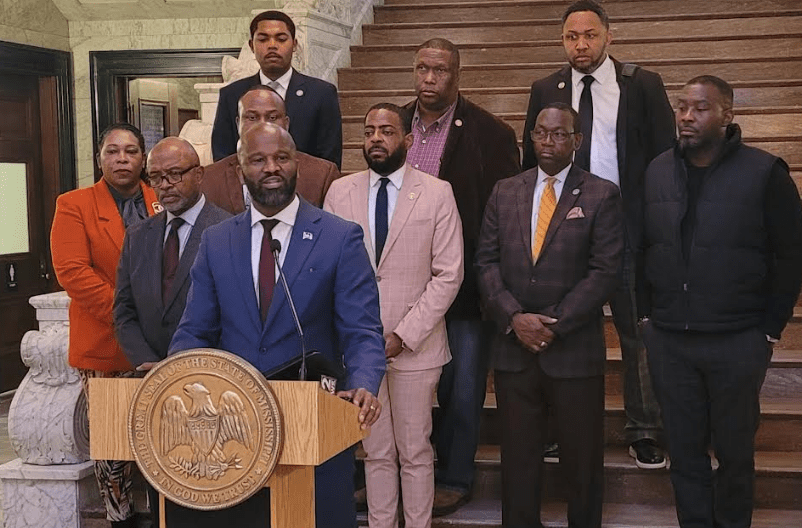Senator Chris McDaniel Weekly Column, March 11, 2011
Last week, I discussed the controversial process of redistricting, explaining that each chamber – the House and the Senate – is responsible for drawing and submitting its own map of district lines.
The Mississippi House initially approved its arrangement, but not without significant controversy. Split mostly along party affiliation, it passed a partisan plan by a vote of 65-55, with Republicans voicing strenuous objections regarding the newly proposed district lines.
Since the House proposal cannot become law without Senate approval, it was promptly assigned to the Senate Elections Committee for initial consideration.
After deliberation, the Senate Elections Committee voted to “table” the House plan, recognizing its inherent unfairness and partisan tilt in favor of Democratic lawmakers. Not only did the plan intentionally carve out a number of potential challengers, it implemented aggressive gerrymandering to secure the success of troubled incumbents.
The House plan also cleverly utilized the process of over-deviation to guarantee at least one additional Democratic district. Specifically, by packing Republican districts with five-percent more than the average population and keeping Democrat districts to less than the average, at least one Republican-leaning district was effectively ignored and not drawn. The end result of such a partisan approach saw conservative areas that increased in population not picking up new seats, while heavily Democratic areas that lost population either maintained seats or added new ones.
Although the Senate was busy rejecting the unjust House plan, it was also presented with two different Senate maps, representing distinct visions of how Senate districts would be formed during the coming decade. One map was favored by Lt. Gov. Phil Bryant. The other was proposed by Elections Committe Chairman SenatorTerry Burton. After an extensive debate, the Senate accepted the Burton plan, transmitting it to the House for review.
In light of the above, a House committee is now studying the Senate’s plan. The House committee will probably pass the Senate plan, but its Democratic leadership will attempt to change it by merging the rejected House proposal into the Senate position, joining both under one resolution. If successful, House leadership would then transmit the combined measures back to the Senate for a vote.
The Senate, at that point, would be constrained to either concur with the House’s concept (finalizing the redistricting process) or reject the House’s amendment and invite conference. If conference is invited, three Senate members will meet with three House members in an attempt to reach a compromise.
Complicating matters, federal law requires covered jurisdictions like Mississippi to submit proposed voting changes for pre-clearance prior to implementation. Presently, it is the duty of the Department of Justice to determine if the changes – in this instance, the drawing of new district lines – were adopted with a discriminatory intent or whether they will have a discriminatory effect.The purpose of pre-clearance is to recognize that the proposed changes do not have the purpose nor effect of denying or abridging the right to vote on account of race or nationality.
If Mississippi demonstrates that the changes implemented are not discriminatory, the plans will be approved. If the state fails to prove that the changes are not discriminatory, the Department of Justice has the power to demand new proposals.
The Department of Justice has 60 days to review submitted plans. Failure to respond within 60 days constitutes pre-clearance of the changes. There is a possibility for expedited approval under emergency circumstances, such as an approaching qualifying deadline.
If the measures are not approved by June 1, 2011, then it would be likely that legislators would have to run for election in 2011 (in their current districts), and again in 2012 (in their newly designed and approved districts). The 2012 election cycle, if necessary, would be for only a three-year term.
I will keep you informed as the process continues.
In other matters, the Senate also approved House Bill 620, legislation which would authorize state agencies to develop a strategy to force drivers to show proof of liability insurance coverage, allowing tax assessors and collectors the power to deny automobile tags to those whose names do not appear in an electronic database. It would likewise impose penalty provisions for non-compliance.
Other bills passed by the Senate include:
House Bill 420, legislation that would allow juvenile offenders to be sentenced to the intensive supervision program administered by the Department of Human Services.
House Bill 827, an act that would require out of state pharmacies to obtain the signature of someone 18 years or older when shipping any controlled substances to a Mississippi resident.
As always, I welcome your comments, concerns and suggestions. If you have any questions or comments, please feel free to contact me anytime at cmcdaniel@senate.ms.gov.







